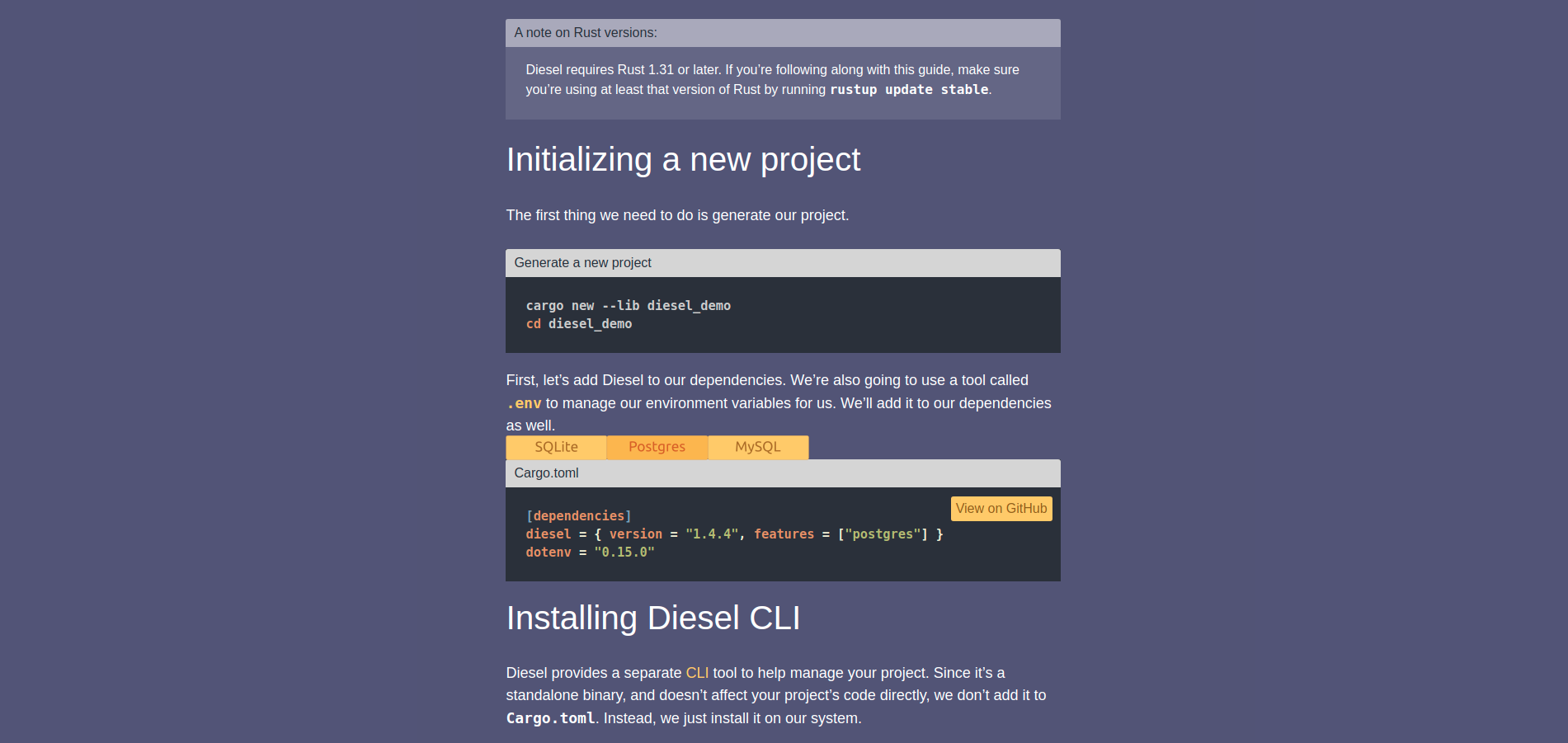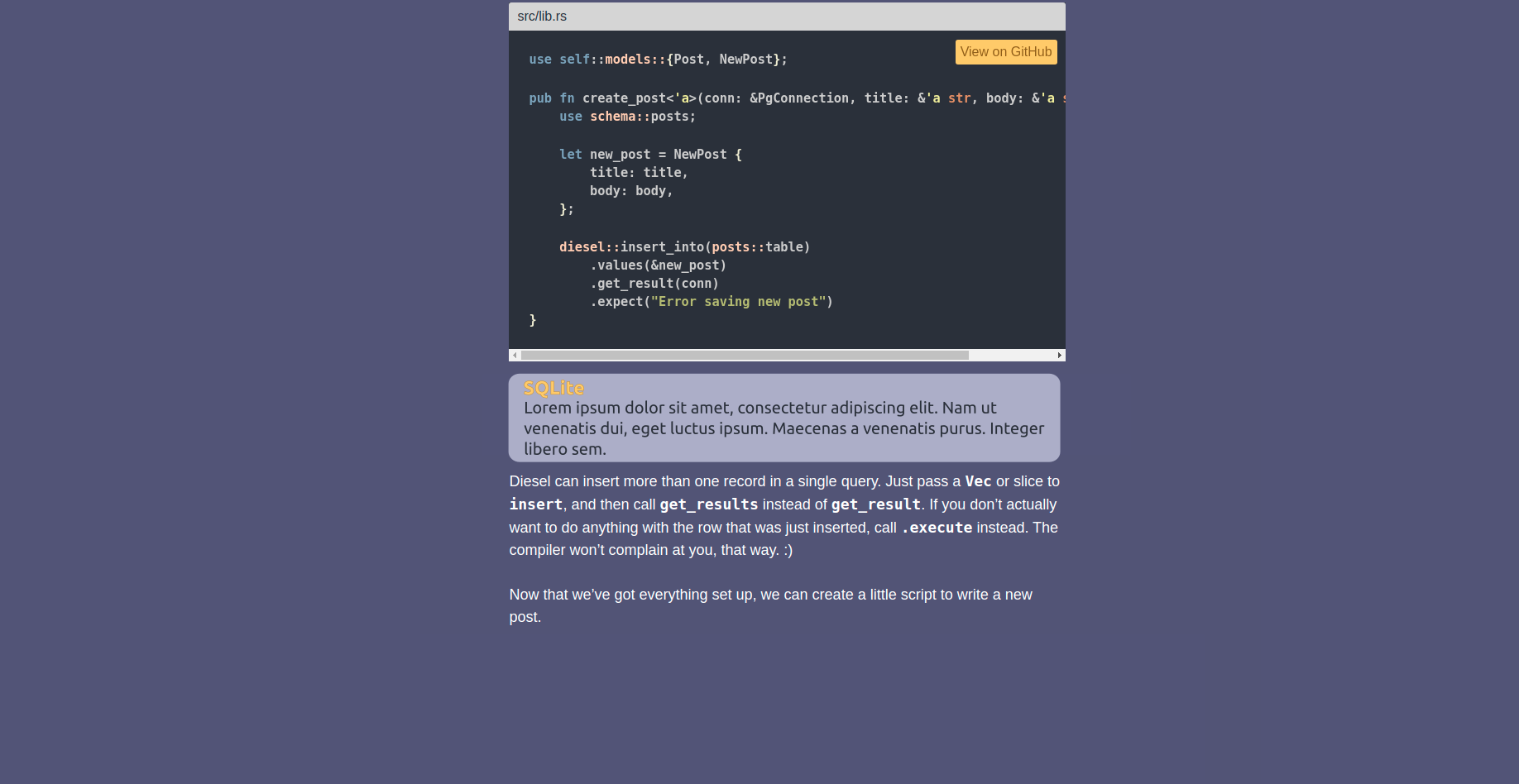Thanks for opening this issue. We would definitively welcome improvements for the getting started guide so that it contains examples for other backends as well. The corresponding code already exists as part of the main diesel repo. That written at least I do currently have neither time, motivation or the required web developer skills to implement the suggested improvements, but I would by happy to merge any PR's here.
The Getting Started Guid is a great resource when getting started with Diesel. It goes though all of the basics quickly and clearly. Unfortunately, it's only written for PostgreSQL.
I'm not a professional programmer, I'm more of a weekend hobbyist. So this is more from a novices' stand point rather than a professional's. I think the best kinds of getting started guide or an introduction guide should use the simplest of technologies to get the a new user up and running with the least amount of friction. Using PostgreSQL doesn't fulfill that requirement. The user has to install PostgreSQL database, configure it, and run the server before even beginning the guide. The guide should focus on the simplest of technologies by default at least, which in this case, would be SQLite.
Although this might not seem like a big deal at first glance -- superficially it might seem simple enough for the reader to replace
postgresswith the database technology they would like to use -- there's quite a number of issues that pops up where the solution is not obvious.Examples
up.sql
SQLite doesn't support some of the types used in PostgreSQL:
This might be obvious to someone who works with SQLite but can be a source of frustration for someone planning to use SQLite for the first time.
Here's an example of a YouTuber explaining how to go about making changes to this example so it would work for SQLite.
src/lib.rs
Here the connector is made with
diesel::pg::PgConnection;. An astute reader will most likely realize that theuse diesel::pgcontains methods for connecting to a PostgreSQL database. The reader would have to resort to reading the documentation to fix this line. Not the end of the world, and some might say that reading the manual is a good thing, but this is a Getting Started guide which should be a tutorial with the least amount of friction possible.Here's an example of a YouTuber explaining how to go about making changes to this example so it would work for SQLite.
src/models.rs
Same as the
up.sqlexample, SQLite does not supportbooltypes.src/lib.rs
The
pub fn create_post<'a>(conn: &PgConnection, title: &'a str, body: &'a str) -> Post {has to changed. Another problem is.get_result(conn)which is not implemented for SQLite. This is not obvious. Achieving the same reuslt as this line is also not obvious.A YouTuber explaining the problem.
These are only some of the firction when using the Getting Started Guid for a database technology other than PostgreSQL.
Solution
The solution is to have the same tutorial but with the snippets translated for each database supported by Diesel. This would also mean that the body of the guide has to be worded in a way that applies to all databases and when the details diverge, add a note box for the specific database.
Here's a mock-up of how the snippets can be toggled for each database.
Here's a mock-up of how special notes for the databases can be implemented.
Another way to achieve the same thing without coding a dynamic page would be to write a separate Getting Stated Guide with
Thank you all for a fantastic library!